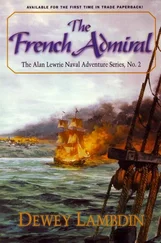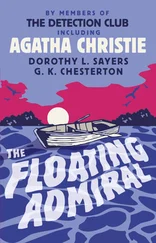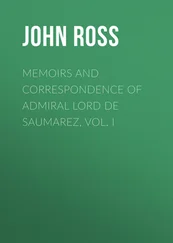Charles Beresford - The Memoirs of Admiral Lord Beresford
Здесь есть возможность читать онлайн «Charles Beresford - The Memoirs of Admiral Lord Beresford» — ознакомительный отрывок электронной книги совершенно бесплатно, а после прочтения отрывка купить полную версию. В некоторых случаях можно слушать аудио, скачать через торрент в формате fb2 и присутствует краткое содержание. Жанр: foreign_antique, foreign_prose, на английском языке. Описание произведения, (предисловие) а так же отзывы посетителей доступны на портале библиотеки ЛибКат.
- Название:The Memoirs of Admiral Lord Beresford
- Автор:
- Жанр:
- Год:неизвестен
- ISBN:нет данных
- Рейтинг книги:5 / 5. Голосов: 1
-
Избранное:Добавить в избранное
- Отзывы:
-
Ваша оценка:
- 100
- 1
- 2
- 3
- 4
- 5
The Memoirs of Admiral Lord Beresford: краткое содержание, описание и аннотация
Предлагаем к чтению аннотацию, описание, краткое содержание или предисловие (зависит от того, что написал сам автор книги «The Memoirs of Admiral Lord Beresford»). Если вы не нашли необходимую информацию о книге — напишите в комментариях, мы постараемся отыскать её.
The Memoirs of Admiral Lord Beresford — читать онлайн ознакомительный отрывок
Ниже представлен текст книги, разбитый по страницам. Система сохранения места последней прочитанной страницы, позволяет с удобством читать онлайн бесплатно книгу «The Memoirs of Admiral Lord Beresford», без необходимости каждый раз заново искать на чём Вы остановились. Поставьте закладку, и сможете в любой момент перейти на страницу, на которой закончили чтение.
Интервал:
Закладка:
At nine o'clock in the morning I started, together with the captain of the maintop, Edward Hele. We took with us ropes, a rope ladder, cod-line, and a small lead. These were all our appliances. We drove to the foot of the mountain and began the ascent at 11.5 a.m. Now the mountain of Pieter Botte is shaped like a church with a steep roof, from one end of which rises a spire. This pinnacle of rock is crowned with a huge, rounded, overhanging boulder.
Part of the ridge was so sharp that we were forced to sit on it and to proceed astride. Then we came to the pinnacle. The ascent was so sharp and difficult that we were obliged to take off both shoes and socks. At one point, I lost my balance, and was only saved from falling backwards by Hele's ready hand. Climbing the pinnacle was far more difficult than scaling the overhanging boulder at the top. At the top of the pinnacle there was just room to stand beneath the overhanging boulder. The only possible method of climbing the boulder was to get the rope ladder over the top of it. Accordingly, one end of the rope ladder was attached to the lead-line. In order to swing the lead, one of us was roped with a round turn round his body, while the other, lying on his back, held the rope while the leadsman, leaning right backwards and outwards over the sheer precipice of some 3000 feet fall, swung the lead. We took it in turns to swing the lead; as we leaned outwards, the rock spread over our heads like an umbrella; and it was an hour and a half before we succeeded in casting it over the boulder. Then we hauled the rope ladder over and made all fast. It was too short, and the last few yards we hauled ourselves up hand over hand. So we climbed to the top, which is a platform of about 20 feet square. It was then 1.59 p.m. We took off our shirts, and waved them to the warships lying far below in the bay, from which we were plainly to be distinguished with the aid of a telescope. The ships each saluted us with one gun. We planted on the summit a flag upon whose staff were carved our names and the names of our ships. When we returned, my brother officers gave us a dinner to celebrate the event.
Hele was eventually promoted to warrant officer. When Hele died, I was able to help his son to gain his education, and he did very well. It was in Mauritius that we went out shooting with the native population; one of the most dangerous amusements in which I have ever taken part, for the bullets used to whistle in the air all round us.
From Mauritius we proceeded to Cape Town. Here, on the 12th July, 1870, the Duke inaugurated the new harbour, breakwater and docks. I kept a team on shore, and used to drive up from Simon's Bay to Cape Town. Every now and then we stuck in a quicksand. On one such occasion I had a brother officer with me; and as he was afflicted with a cold, I took him on my back to save him from wet feet. But I fell with him, and we were both soaked to the skin. Upon another day, when we stuck, I put two of my messmates on the leaders, and they pulled the coach right through. If you want horses to pull a weight out of a tight place, put weight on their backs.
The Colonial Secretary at Cape Town was Mr. Southey. He was a most delightful and sagacious person, and became a great friend of mine. He prophesied in a most wonderful way what would be the future of South Africa.
"If," said he, "we could only get a big man, a master-mind, to come out here, all that I foresee would come true."
The right man presently arrived in the person of the late Cecil John Rhodes, and my friend's prophecies have been most singularly fulfilled.
While at the Cape, we went up country, shooting. Both Dutch and English families were most kind and hospitable to us. Upon one of these expeditions, a member of the staff went out by himself very early in the morning to shoot. Observing some ostriches in the distance, he stalked them with immense labour and patience, and presently succeeded in shooting a couple of birds. When he returned, he complained that it had been very difficult to get his sights on, owing to some high rails which were between himself and the birds. It had not occurred to him that he had been stalking tame ostriches on a farm.
I once rode from Cape Town to Simon's Town and back, between lunch and dinner, galloping the whole distance, with four changes of horses. The distance between the two places is about 35 miles as the crow flies. My errand was merely to postpone the arrival of a visitor who was to come to the Galatea .
The ride, however, showed that I was in good condition. I have always tried to keep myself fit, holding that condition of body regulates condition of mind. Cheery people deserve small credit, because their frame of mind is due to their being right inside. Quarrelsome people are wrong inside.
On our way to England we touched at the Falkland Islands where I visited a relative of mine who kept a ranch. He used bull-dogs to catch his bulls, when he required them for branding. The dogs seized the bulls by the nose and held them while they were lassoed by the guachos.
When we touched at Montevideo, I remember conversing with various persons, who foretold the immense profit which must eventually accrue if the land there was purchased at that time. Their opinion has since proved true. But I had no money to invest; so that the opportunity was only another instance of what might have been.
The Galatea was badly strained in a gale of wind, her deck seams opening so that the water streamed into the cabins beneath. One lieutenant used to say to another:
"How did you sleep last night? It was pretty rough.
"Woke at one o'clock and saw them reefing tops'ls" – meaning that, lying in bed, he could see clear through the seams.
I used my sail-making ability to make a canvas awning for my bed; fitted it with a ridge rope, laced it down and hauled it taut, led a trough from it to take the water into the slop-pail; and slept dry under it.
It was during the visit of the Galatea to Australia that I was made a Freemason; and I have always regretted that I have never been able to devote as much time to Masonry as I should have liked to give to the Craft. The Australian Lodge into which I was admitted was under the impression that I was the most timid neophyte who had ever joined it.
When the ceremony was ended, one of the members of the Lodge said to me:
"You are safely through it. But do you know that of all the men we have had through this lodge, we never had one so paralysed with fear as yourself. You were shivering like an aspen!"
The fact was that during the initiatory ceremonies something unaccountably struck me as extraordinarily funny. The effort to subdue my emotions caused me to tremble all over.
One of our diversions in the Galatea when she was at sea, was to listen to the conversations which used repeatedly to occur between a certain worthy member of the Duke's suite and the old quartermaster. The member of the staff in question had endeared himself to us by his high seriousness. He dealt with the most trifling incidents of life in a spirit of preternatural and wholly sincere solemnity. Supposing that you told him that a common friend had fallen off his horse and bruised his leg, our member of staff would instantly ship a countenance of intense concern.
"Bruised his leg? You don't say so! Good God! Has he indeed?"
"Yes – he's bruised his leg!"
"Has he now? Well, well. Bruised his leg! I hope it's not serious. I do hope it's not serious. Tut-tut! Bruised his leg, you say?"
"It's not serious. But he's bruised his leg."
"I'm delighted to hear it's not serious. But – bruised his leg. I am really distressed."
And so on.
Among other matters, our friend took his family very seriously. One of his ancestors had been an admiral; and it was this distinguished officer who made the link between the member of staff and the quartermaster. The member of staff used to stroll on the quarterdeck in the evening, and fall into talk with the seamen.
Читать дальшеИнтервал:
Закладка:
Похожие книги на «The Memoirs of Admiral Lord Beresford»
Представляем Вашему вниманию похожие книги на «The Memoirs of Admiral Lord Beresford» списком для выбора. Мы отобрали схожую по названию и смыслу литературу в надежде предоставить читателям больше вариантов отыскать новые, интересные, ещё непрочитанные произведения.
Обсуждение, отзывы о книге «The Memoirs of Admiral Lord Beresford» и просто собственные мнения читателей. Оставьте ваши комментарии, напишите, что Вы думаете о произведении, его смысле или главных героях. Укажите что конкретно понравилось, а что нет, и почему Вы так считаете.












